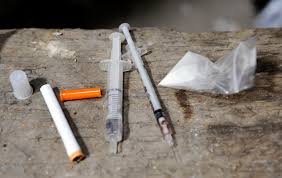Discriminating obese and overweight people

Discriminating obese and overweight people is wrong and we must join forces to stop it
Discriminating obese and overweight people: How it affect both men and women
It is regrettable that at this point of time people are still living under certain siege of discrimination because of some health conditions that could be avoided like weight gain and obesity. Discriminating obese and overweight people a serious illegality which is very common the world over with the US taking the lead. I will be discussing some of the effects of this uncalled for habit and offer you solutions so that you can live your life freely and void of any discrimination. According to the experts from AWAREmed health and wellness resource center under the leadership of doctor Dalal Akoury MD, people who are affected by excess weight or obesity experience discrimination across a wide variety of settings, including healthcare, employment, schools, public transport sector, social amenities joints and interpersonal relationships.
Discriminating obese and overweight people: Social discrimination
Let us consider the employment settings, job seekers who are affected by excess weight are often less likely to secure job opportunities or even be recommended for promotion compared to their slimmer colleagues and in the very extreme they are also faced with lower remunerations and increased risk of job insecurity based on their weight alone.
In healthcare settings, obese patients often experience prejudice, apathy and lower quality of care from medical professionals, which may result in patients choosing to delay or forgo crucial preventative care to avoid additional humiliation.
Students also face weight-based victimization in educational sector from their peers, teachers and even parents, which may interfere with social support and educational achievement.
Weight stigma is even present in interpersonal relationships with friends, family and romantic partners, such that negative judgment invades almost all areas of the lives of people affected by obesity.
Discriminating obese and overweight people: Gender differences in weight gain stigma
Although both men and women are vulnerable to weight discrimination, their experiences may differ with respect to how much discrimination they are exposed to and the forms that it takes. Most notably, women seem to experience higher levels of weight stigmatization than men, even at lower levels of excess weight. Research suggests that women, especially those who are middle aged or with lower levels of education, experience weight discrimination at significantly higher rates than male peers. Moreover, women report weight discrimination at lower levels of excess weight than men. For example, men tend to report considerable stigmatization at a Body Mass Index (BMI) of 35 or higher, whereas women report experiencing notable increases in weight discrimination at a lower BMI of only 27.
North American ideals of physical attractiveness, which emphasize thinness as central to feminine beauty, may account for some of these differences. Women whose bodies deviate, even slightly, from physical beauty standards may be vulnerable to weight stigmatization. Given that thinness ideals have become deeply ingrained into our society and are heavily promoted by the mass media, diet industry and fashion industry, it’s not surprising to see widespread weight stigmatization toward women, even if they are not “obese.” For women, weight discrimination has been associated with poorer body image, low self-esteem, depression, anxiety, and a range of unhealthy eating behaviors, including binge eating. We must get out of this madness and scheduling an appointment with AWAREmed health center should be the starting point to getting a leaner body weight.
Discriminating obese and overweight people: How it affect both men and women
http://regenerativepotential.com/wp-admin







